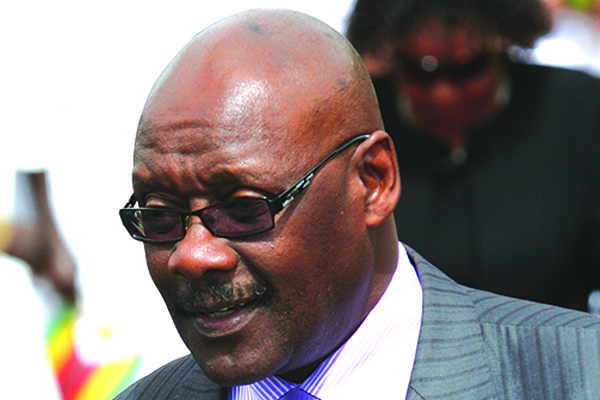
SENIOR doctors and specialists yesterday joined striking junior doctors, further paralysing services at government hospitals mostly in Harare and Bulawayo.
BY PHYLLIS MBANJE
Public hospitals’ outpatients departments were a sorry sight, as patients were left stranded following the industrial action by doctors.
The situation at the country’s major referral hospitals in Harare and Bulawayo has taken a frightening turn, with obstetrician and gynaecologist registrars also downing tools.
This potentially puts the lives of expecting mothers, especially those requiring surgery, and their unborn babies at risk.
In a statement, the registrars, who are specialist trainees in obstetrics and gynaecology, said they no longer felt it was safe for the patients if they continued in the absence of senior resident medical officers.
“We tried to continue working, but the demands are so exhausting, such that we fear we may end up making fatal errors resulting in unwanted maternal and perinatal morbidity and mortality,” the registrars said.
A2 paediatrics casualty at Parirenyatwa Hospital, which deals with children, was also shut down.
- Chamisa under fire over US$120K donation
- Mavhunga puts DeMbare into Chibuku quarterfinals
- Pension funds bet on Cabora Bassa oilfields
- Councils defy govt fire tender directive
Keep Reading
In a notice, one I Ticklay, the acting head of department paediatrics, to Noah Madziva, the clinical director, said the section had been closed in “line with contingency plans”.
“All paediatric patients will be seen and managed in main causality,” the circular read.
A tour of Parirenyatwa Hospital by the NewsDay Weekender crew yesterday revealed the shocking situation, which is most likely going to cost some lives.
Hospital emergency rooms were staffed largely by nurses and interns and waiting rooms packed with patients, many on stretchers.
Hordes of patients sat in the outpatients department in long, winding queues. The serious ones lay on stretchers, with no one to attend to them except for their relatives, who were frantically trying to get them help.
With dejected faces, the patients sat on the wooden benches unsure of when they would get to see a doctor.
“We have been here since 10 in the morning, but it is almost 2pm and we have not been attended to,” one sickly looking man, who was coughing badly, said.
A young man in his early 20s and on a stretcher, struggled to sit up maybe to get some attention, but no one came.
The pain on his face was quite evident and his swollen feet stretched out before him looked horrendous.
“We hear they are on strike or go-slow. We are not sure. All we know is there is no doctor to help us and many of us will go home unattended,” a distraught woman who was struggling to breathe, said.
The stuffy room was filled to capacity as both patients and concerned relatives milled around waiting for absolution that never came.
The situation remained dire, as many patients failed to be attended to, as most hospitals were operating with skeleton staff.
Striking doctors are deadlocked with the government over long-standing grievances which include an announcement by government that it would no longer employ them upon completion of their two-year internship, a situation that would render them jobless.
The doctors are also pressing for the government to raise their on-call allowances and want it to provide them with a duty-free motor vehicle import scheme, among other issues.
The Health ministry frantically tried to avert the disaster by offering to create 250 new posts, but the doctors scoffed at the offer, which has no time frame.
On Wednesday, as a last-ditch attempt the Health ministry sent out a desperate plea to the doctors urging them to return to work.
Hospital officials also tried to rattle the doctors into coming to work by circulating a threatening statement.
However, the doctors would have none of it and carried on with the strike.
“We have noted with utter disappointment the new tactics by various clinical directors at central hospitals, that instead of engaging doctors and try to find solutions to our current demands, they have reverted to threats and victimisation,” Edgar Munatsi, Zimbabwe Hospital Doctors’ Association president said.
Meanwhile, health stakeholders have rallied behind the doctors urging the ministry to urgently address their concerns.
The Community Working Group on Health (CWGH) said the current situation could result in prolonged human suffering and avoidable deaths.
“As CWGH, we strongly believe that the current labour dispute could have been resolved amicably if the government had honoured the promises it made to the medical practitioners last year,” Itai Rusike, CWGH’s director, said.
“It is surprising that the ministry of Health Child Care has now offered to open up 250 new posts, for junior doctors and 2 000 for nurses when it has not fulfilled last year’s promises to the same doctors.”
Meanwhile, the doctors have vowed to press on with the strike until all their concerns have been dealt with in their entirety.”











